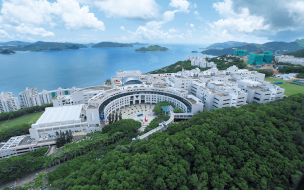Situated on the outskirts of Moscow, and still looking very much under construction, Skolkovo - its full name is The Moscow School of Management – aims to be a Russia-anchored, world class institution along the lines of China’s CEIBS.
It has already forged a partnership with MIT, and counts Lee Kuan Yew, the founder of Singapore; Dennis Nally, Chairman of PriceWaterhouseCoopers; and Russian President Dmitry Medvedev as members of its advisory board.
The first full-time MBA students will start the 18-month program, which costs €50,000 and is taught in English, this September. There will be 45 students in the first intake.
Andrei Volkov is the School’s self-styled “Russian Dean”. Volkov, a former advisor to Russia’s Minister for Education, also pioneered executive education programs for some of Russia’s biggest companies as a head of the Academy of National Economy, and has climbed Mount Everest. The “International Dean” is Wilfried Vanhonacker, who helped to establish CEIBS where he was dean from 2001 to 2002.
There are three key differences between Skolkovo and existing business schools, according to Volkov. The first is the School’s entrepreneurial bias. Students will be given comprehensive training, not just in management, but in the skills needed to run a whole organization. Entrepreneurial tools can be applied in government and not-for-profit agencies too.
Second, the School will concentrate on emerging markets. “It’s difficult to imagine that we can compete in knowledge creation with London Business School, Harvard and Insead,” says Vokov. “But we are in Russia. Here, we have a different economic environment and different business rules”.
The third difference is an innovative curriculum that has students undertake five internships during the program, in each of Russia, China, the US, a corporation and a non-profit organization. “There was no point in copying the curriculum from existing business schools,” says Volkov, “so we jumped to an innovative approach.”
“I’ve always been pretty skeptical about the knowledge-centric model in business education”, he continues. “The real world is more than just cases. You have to be prepared for real practice”.
The Skolkovo project has moved fast. “We first had the idea in April 2005,” says Volkov, recalling a conversation he had with Ruben Vardanian, who is now president of the School. At the time, Volkov was advisor to Russia’s Minister for Education and was thinking of ways to modernize the country’s education system.
Vardanian is one of the most powerful men in finance, as chairman and CEO of Troika Dialog Group, Russia’s biggest investment banking and asset management firm.
Within a year, Vardanian and Volkov managed to convince a “critical mass” of funders to endow the school to the tune of half a billion dollars. They include Russian steel giant Severstal, oligarchs Roman Abramovich and Leonid Mikhelson, and international firms like India’s Sun Group.
Many of the funders will share their expertise through master classes and lectures, granting Skolkovo students access to Russia’s business community. “It’s an opportunity for someone who wants to be a player in this world,” says Volkov.
He describes a typical Skolkovo MBA student as around 28 years old, with four or five years of management experience, and entrepreneurial drive. Around a third of students will be Russian, another third from the wider CIS states, and a third international.
The main thing that sets them apart is a desire to understand how emerging markets work. “It’s a much more unpredictable, unstable environment,” says Volkov. “There are a lot of risks and a lot of opportunities. People should be ready to take risks, but we need trained risk-takers.”
As well as training international emerging markets operators, the School aims to address the shortage of management skills in Russian firms. “Many companies need not just basic skills but basic knowledge,” argues Volkov. He cites the entry of international players like Duke University and London Business School as evidence that the market is under-developed. He predicts that business education will increase ten times over during the next twenty years.
The School’s partnership with MIT, which will kick off in November, includes exchanges for students and faculty, joint research, and a program for the oil and gas industry, which is co-funded by oil company BP.
At the moment the School is not offering any scholarships, but three winners of an entrepreneurs’ competition will study for free.
RECAPTHA :
b7
60
74
39







